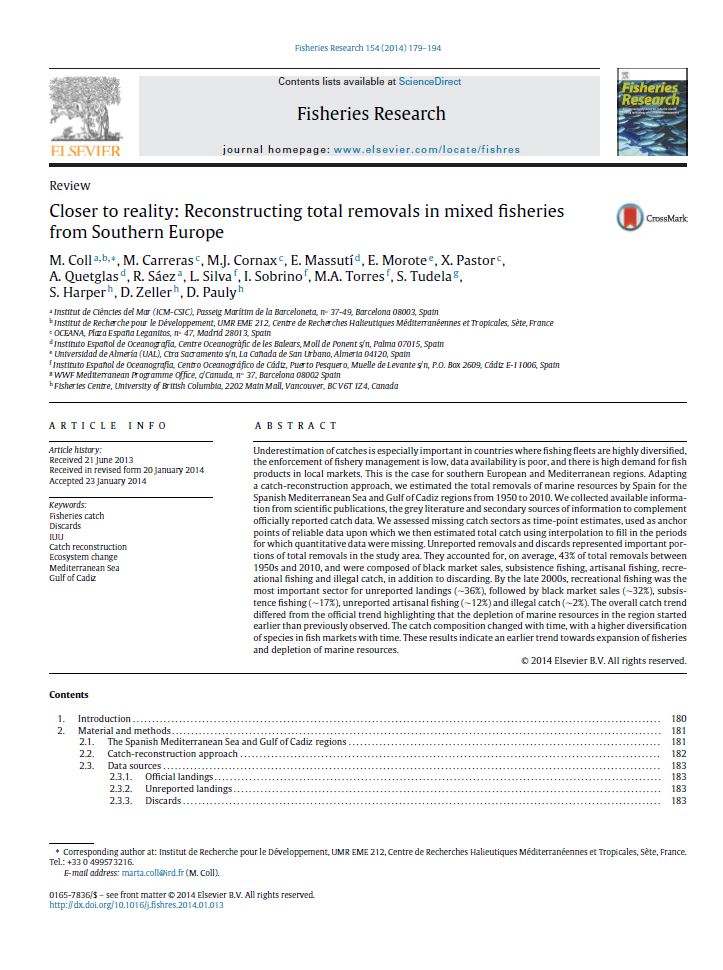Report | January 11, 2018
Closer to reality: Reconstructing total removals in mixed fisheries from Southern Europe

Underestimation of catches is especially important in countries where fishing fleets are highly diversified, the enforcement of fishery management is low, data availability is poor, and there is high demand for fish products in local markets. This is the case for southern European and Mediterranean regions. Adapting a catch-reconstruction approach, we estimated the total removals of marine resources by Spain for the Spanish Mediterranean Sea and Gulf of Cadiz regions from 1950 to 2010. We collected available information from scientific publications, the grey literature and secondary sources of information to complement officially reported catch data. We assessed missing catch sectors as time-point estimates, used as anchor points of reliable data upon which we then estimated total catch using interpolation to fill in the periods for which quantitative data were missing. Unreported removals and discards represented important portions of total removals in the study area. They accounted for, on average, 43% of total removals between 1950s and 2010, and were composed of black market sales, subsistence fishing, artisanal fishing, recreational fishing and illegal catch, in addition to discarding. By the late 2000s, recreational fishing was the most important sector for unreported landings (~36%), followed by black market sales (~32%), subsistence fishing (~17%), unreported artisanal fishing (~12%) and illegal catch (~2%). The overall catch trend differed from the official trend highlighting that the depletion of marine resources in the region started earlier than previously observed. The catch composition changed with time, with a higher iversification of species in fish markets with time. These results indicate an earlier trend towards expansion of fisheries and depletion of marine resources.
Read the full paper: http://www.sciencedirect.com/science/article/pii/S0165783614000216


